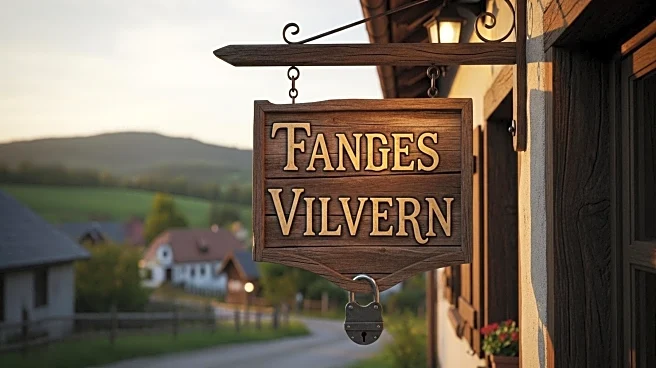What is the story about?
What's Happening?
Village Tavern & Grill in South Elgin is set to close after eight years in operation, with its final day of service scheduled for Tuesday. Owner JR Hutson cited several factors contributing to the decision, including disputes with the landlord, rising food costs, and changing dining habits post-COVID-19. The price of chicken breasts, a key ingredient for their popular chicken fingers, has surged from $42 to $170 per case since the pandemic, making it difficult to maintain menu prices. Additionally, a business partner has stepped down, and the fees from food delivery services have become burdensome. The restaurant faces stiff competition in its location, with other nearby establishments also closing recently.
Why It's Important?
The closure of Village Tavern highlights the ongoing challenges faced by the restaurant industry, particularly in adapting to post-pandemic economic conditions. Rising food costs and altered consumer behavior have pressured many establishments, leading to closures and financial strain. This situation underscores the broader impact of economic shifts on small businesses, which are crucial to local economies and community life. The loss of such establishments can affect employment and reduce dining options for residents, reflecting a significant shift in the local business landscape.
What's Next?
As Village Tavern prepares to close, the focus will likely shift to supporting affected employees and exploring new business opportunities for the owner. The closure may prompt other local restaurants to reassess their business models and strategies to cope with similar challenges. Community members may seek alternative dining options, potentially boosting business for remaining establishments. The broader restaurant industry may continue to adapt by exploring cost-effective solutions and innovative service models to survive in a changing economic environment.
Beyond the Headlines
The closure of Village Tavern also raises questions about the sustainability of traditional dining models in the face of evolving consumer preferences and economic pressures. It highlights the need for businesses to innovate and adapt to survive, potentially leading to shifts in how restaurants operate and engage with customers. The reliance on delivery services and the impact of their fees on profitability may drive discussions on fair practices and support for small businesses.

















